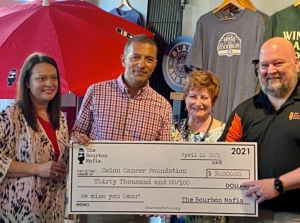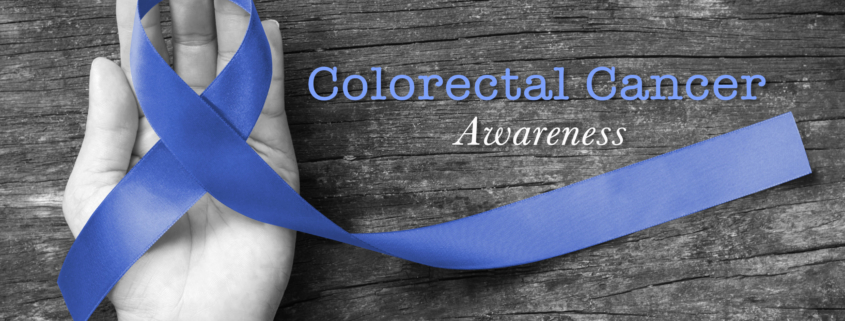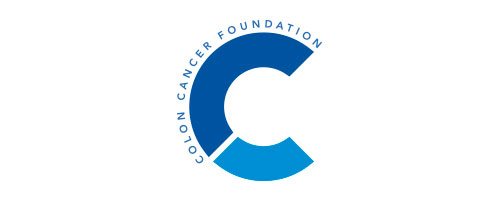In 2013, The Bourbon Mafia was formed when a group of bourbon enthusiasts and industry professionals came together in their search for rare bourbon. About a year in, they realized that they could utilize their platform to raise money for causes that are near and dear to their hearts. With 42 members spanning 11 U.S. states, and two members in Australia, the organization has raised approximately $150,000 since 2014 for various charities, including the Colon Cancer Foundation (CCF). The Bourbon Mafia raises money through events, including bourbon raffles, dinners, and bottle auctions.
Brian Gelfo, one of the founding members and the treasurer and secretary of the Bourbon Mafia, spoke with the Colon Cancer Foundation about their organization’s motivation for donating to CCF. Omar Marshall was one of the first classes brought into The Bourbon Mafia. Following his diagnosis of colorectal cancer (CRC) in 2020, he and his wife, Pam Marshall, decided they wanted to raise awareness around this disease. The initial goal of The Bourbon Mafia was to donate in his honor while Omar was still with them. Unfortunately, Omar lost his battle with CRC on January 18, 2021.

Robert Diaz (second from left) receiving a donation from The Bourbon Mafia on behalf of the Colon Cancer Foundation.
Nevertheless, a $30,000 donation was made to CCF in April 2021. Before Omar passed, he participated in a selection of a Four Roses Bourbon barrel that would be used for the donation. Mr. Gelfo highlighted an impactful statement by Robert Diaz who represented CCF at the engagement event: “This $30,000 donation can fund 1,000 colon cancer screenings.” Members of The Bourbon Mafia were gratified that their efforts could impact the lives of a thousand people. “Even if one finds out early and gets treated, it’s well worth it,” Mr. Gelfo said.
According to Mr. Gelfo, many members in the bourbon industry, including fans and supporters, are predominantly older men. Through these events, The Bourbon Mafia hopes to raise awareness in the community for them to get screened.
This year, their event was held on 25th February, 2022, in Louisville, Kentucky, where they expected to raise a minimum of $10,000. Barrels will be hand selected from Starlight Distillery and guests will receive a sample of bourbon, a beer, and a bottle of bourbon to take home. Silent auction items will be donated by Mrs. Marshall and the family as well as other distilleries.
Mr. Marshall was buried on the farm under an oak tree from where he can watch over the farm, as he always wanted to. Mrs. Marshall emphasized the importance of early detection and being proactive for any type of cancer. “The Bourbon Mafia and bourbon itself has brought me into contact with so many wonderful people who share the same passion for bourbon and helping others,” she said.
Kenadi Kaewmanaprasert is an intern with the Colon Cancer Foundation.






